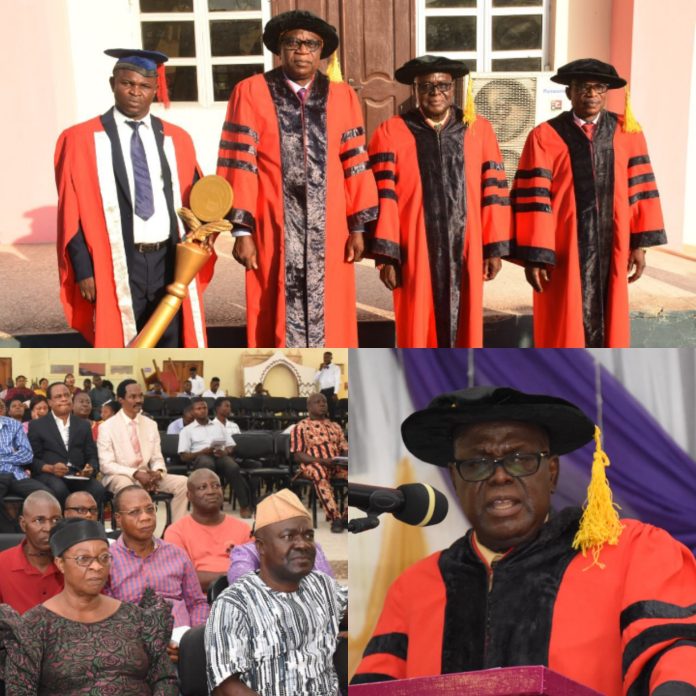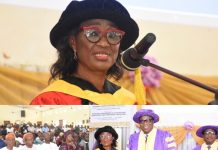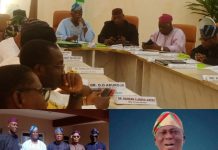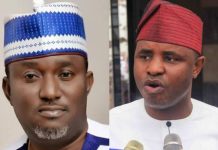
A renowned political scientist, Prof. Dipo Kolawole, has submitted that only full government intervention can lead to sustaining and shaping the future of Nigerian universities.
Prof. Kolawole made this submission on Thursday, December 12, 2024, while delivering the Adekunle Ajasin University’s 13th Convocation Lecture, titled, “Global Perspectives, Local Impacts: Shaping the Future of Nigerian Universities”, held in the University Multipurpose Hall.
Prof. Kolapo, a former Vice Chancellor of Ekiti State University, Ado-Ekiti, noted that governments and proprietors of universities must enhance the welfare of their staff with wages that are comparable to world-class higher institutions, adding that they must vigorously continue to pursue relevance in the global community of universities.
The Professor of Political Science said, “We must vigorously continue to pursue our place and strive for relevance in the global community of universities. This is to be done in pari passu with sustaining the local impacts of the universities. But we must continually be part of the knowledge economy. There are some needs for global relevance that are beyond university management.
Governments and proprietors of universities must enhance the welfare of their staff with wages that are comparable to global universities, create learning environments that can stand with other global universities in terms of infrastructures learning and teaching aids.
“It is the best teacher who is teaching the best student under the best atmosphere and in the best environment that will produce quality graduates for national development. And for the lecturers, the best talented academics will attract external funds for quality research. The funding agents and funding institutions will only invest in research projects that will benefit them and only talented scholars can do this.”
The Guest Lecturer highlighted, “There are agencies of government saddled with the responsibilities of ensuring quality assurance. The National Universities Commission (NUC) is one of such bodies. It has the statutory responsibility of instituting programmes accreditation to universities. Institutions must provide opportunities for self-actualisation and self-development since a stagnant staff would stifle the growth of the organization.
Furthermore, the character of the university demands interaction between and among staff of various universities. They must compare notes not only for themselves alone but for the betterment and growth of their organization.”
The scholar also said, “Internationalization is very key to advancement and shaping the future of Nigerian universities. An institution of the 21st century must reach out to other universities in the world. This can be done through partnerships that can produce exchange and linkage programmes. A university that stays in its own cocoon without interaction and relationship with other external to it is only a college.”
Prof. Kolawole acknowledged that in spite of the criticism of its methodology by some scholars, global ranking of universities has put all universities on their toes and in some cases has forced governments and university proprietors to devolve resources to the institutions, regretting that effort had not yet translated to sufficient funding for the universities.
He charged managers of universities to prioritise their meager resources towards increase in high impact research, research output and engagement in international collaborations. He noted that the nation’s varsities must always strive to be part of the global academic ecosystem, saying, “A university is a laboratory of knowledge. Ironically, each can only be able to mine the quantum of knowledge it dispenses to the extent of the available chemicals and reagents available to it.”
Earlier in his opening remarks, the Vice Chancellor, Prof. Olugbenga Ige, had described Convocation Lecture as pivotal platforms for addressing pressing issues of contemporary relevance, offering insights that not only reverberate with the academic community but also contribute to the broader discourse on societal development.
Highlighting the significance of the Lecture, Prof. Ige noted, “Today’s gathering is particularly significant as it provides an opportunity to deliberate on the challenges and opportunities facing higher education in Nigeria, especially as they relate to global trends and local realities.”
Appreciating the Convocation Lecturer, the VC described Prof. Kolawole as a great scholar with exceptional track records, an individual of great repute whose insights are always broad and impactful.















